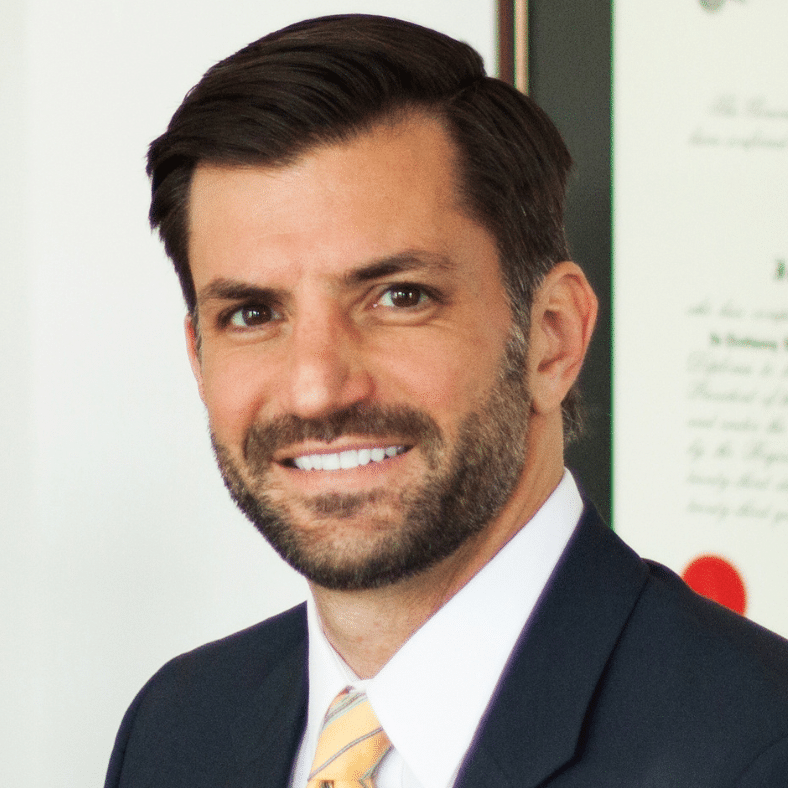Hypochondria Treatment in Los Angeles
Break free from constant health worries with expert, compassionate treatment designed to ease anxiety and restore peace of mind.
Call Us Now
At The Meadowglade, we understand the unique challenges faced by individuals suffering from hypochondria, also known as health anxiety disorder. This condition often leads to overwhelming fear and concern about one’s health, even in the absence of a diagnosed medical condition. If you or a loved one is struggling with health-related anxiety, we are here to provide compassionate, evidence-based treatment to help you regain control of your life.
Hypochondria can significantly impact your emotional and physical well-being. At The Meadowglade, we specialize in a holistic approach to treating health anxiety disorders. Our team of skilled therapists and clinicians work closely with you to provide individualized care that addresses not only your symptoms but also the underlying causes of your anxiety.
If you or a loved one are struggling, learn more about our Los Angeles mental health treatment programs by verifying your insurance or calling us at 888-862-1788.
What is Hypochondria?
Hypochondria, or health anxiety, is a psychological condition where an individual is excessively worried about having a serious illness, despite medical evaluations and the absence of any confirmed diagnosis. People with hypochondria often misinterpret minor symptoms or normal bodily sensations as signs of a severe health problem. This constant fear and preoccupation with health can lead to debilitating stress, anxiety, and avoidance behaviors.
While it’s normal to have health concerns, for those with hypochondria, these worries can become all-consuming and persistent. The anxiety experienced is often disproportionate to any actual physical symptoms, creating a cycle of stress and worry that can be difficult to break without professional intervention.
What is a Health Anxiety Disorder?
Health anxiety disorder, or hypochondria, is classified as an anxiety disorder characterized by chronic worry about one’s health. Individuals with this condition often fear that they are suffering from a serious illness, even when there is no medical evidence to support this belief. This condition can range from mild to severe, and in some cases, it can lead to frequent doctor visits, unnecessary medical tests, or avoidance of health-related situations due to heightened fear.
It is important to recognize that health anxiety is not about faking symptoms for attention, but rather an uncontrollable fear and preoccupation with potential illness that often leads to significant emotional distress. This can make it difficult for individuals to enjoy their lives or engage in daily activities without the constant worry of being seriously ill.
Signs and Symptoms of Hypochondria
Recognizing the signs of hypochondria can be the first step toward getting the help you need. The symptoms of hypochondria may vary, but they commonly include:
- Excessive worry about health: Individuals may constantly worry about having a serious illness, even after reassurances from doctors or loved ones.
- Misinterpretation of bodily sensations: Normal physical sensations, such as a headache or muscle twitch, can be interpreted as symptoms of a serious medical condition.
- Frequent doctor visits: Individuals with hypochondria often seek medical evaluations repeatedly, even after tests come back normal.
- Avoidance behaviors: Certain places, activities, or situations may be avoided due to fear of experiencing a medical emergency.
- Obsession with health information: Constant research about symptoms and illnesses, often leading to heightened anxiety.
- Physical symptoms: Anxiety can manifest physically in the form of fatigue, stomachaches, headaches, and other stress-related symptoms.
- Distress and impairment: The preoccupation with health can cause significant distress and interfere with daily life, relationships, and work.
How Does Hypochondria Develop?
The development of hypochondria can be complex and may result from a combination of genetic, environmental, and psychological factors. While the exact cause is not always clear, several contributing factors may include:
- Genetic predisposition: A family history of anxiety or other mental health conditions may increase the likelihood of developing hypochondria.
- Previous health experiences: A history of serious illness or the death of a loved one due to health complications can trigger heightened health anxiety.
- Stress and trauma: Experiencing significant stress, trauma, or abuse can contribute to the development of anxiety disorders, including health anxiety.
- Cognitive patterns: People with hypochondria often engage in catastrophizing thinking patterns, where they assume the worst possible outcome for any health-related symptom.
- Behavioral reinforcement: The cycle of seeking medical attention and receiving reassurance can reinforce the anxiety and make it harder to break the pattern.
How is Hypochondria Diagnosed?
If you are struggling with health anxiety, a proper diagnosis is the first step in developing a treatment plan that can help you manage the condition effectively. A mental health professional, such as a psychologist or psychiatrist, can diagnose hypochondria through a comprehensive assessment. This process typically includes:
- Clinical interview: A thorough discussion about your health concerns, symptoms, and medical history.
- Psychological evaluation: An evaluation of your mental health, including anxiety levels, thought patterns, and behaviors related to health.
- Exclusion of other conditions: It is important to rule out any underlying medical conditions that might explain the symptoms. A physician may also be consulted to ensure that no physical health issues are contributing to the symptoms.
- Diagnostic criteria: Hypochondria is diagnosed based on criteria outlined in the Diagnostic and Statistical Manual of Mental Disorders (DSM-5), which includes the persistence of health-related anxiety and the impact it has on daily functioning.
Our Treatment Programs for Hypochondria
At The Meadowglade, we provide a range of comprehensive treatment options to help individuals manage and overcome hypochondria. Our approach is tailored to each individual, ensuring the most effective treatment plan based on their unique needs and level of care. The levels of care available at our Los Angeles treatment center include residential treatment, Partial Hospitalization, Intensive Outpatient, Outpatient, and supportive housing.
Residential Treatment
For individuals requiring intensive, round-the-clock care, our residential treatment program provides a structured and supportive environment. Here, clients engage in therapy, skill-building, and group sessions, all within a safe, healing environment.
Partial Hospitalization Program (PHP)
Our PHP is designed for individuals who need significant support but do not require 24/7 care. Clients participate in therapy sessions during the day and return to their homes or supportive housing in the evenings. This program offers intensive treatment while allowing for more flexibility and independence.
Intensive Outpatient Program (IOP)
For clients who are ready to step down from PHP or those requiring less intensive care, our IOP offers structured therapy sessions a few times a week. This program provides ongoing support while allowing individuals to live at home and maintain their daily routines.
Outpatient Treatment
Our outpatient program is ideal for individuals who have completed a higher level of care and are looking for continued support. Clients attend therapy sessions on a less frequent basis, maintaining their independence while addressing any ongoing challenges related to health anxiety.
Supportive Housing
For those who may benefit from additional assistance with daily living, our supportive housing program offers a safe, stable environment where individuals can continue their recovery with access to resources and guidance as they transition back into everyday life.
How Is Hypochondria Treated?
The treatment of hypochondria involves a multifaceted approach, combining therapy, holistic practices, and lifestyle changes to address both the psychological and emotional aspects of health anxiety. Our treatment offerings at The Meadowglade include:
- Cognitive Behavioral Therapy (CBT): This evidence-based therapy helps individuals identify and challenge irrational thoughts and beliefs that contribute to their health anxiety. By replacing these negative thought patterns with healthier coping strategies, CBT plays a key role in reducing symptoms and empowering clients to regain control over their fears.
- Dialectical Behavior Therapy (DBT): DBT is particularly effective for individuals who struggle with emotional regulation and intense feelings of anxiety. Through mindfulness and distress tolerance techniques, DBT helps individuals manage their emotional responses to health-related stress, enabling them to live more fully in the present moment.
- EMDR Therapy (Eye Movement Desensitization and Reprocessing): For clients who have experienced trauma related to health or illness, EMDR helps process and resolve the emotional distress tied to those experiences. This powerful therapy can be instrumental in alleviating persistent health-related fears.
- Equine Therapy: Engaging with horses in a therapeutic setting helps individuals connect with their emotions, build trust, and improve self-awareness. Equine therapy provides a unique opportunity to explore feelings in a non-judgmental environment, reducing anxiety and fostering a sense of calm.
- Family Therapy: Hypochondria often affects not just the individual, but their family members as well. Family therapy helps improve communication, address dysfunctional dynamics, and strengthen the support system for the individual in treatment.
- Holistic Therapy: We believe in addressing the whole person. Our holistic therapy approaches, which include practices like yoga, acupuncture, and nutrition counseling, help clients restore balance in mind, body, and spirit, contributing to overall well-being and a reduction in anxiety.
- Stress Reduction Therapy: Managing stress is essential in overcoming health anxiety. Our stress reduction techniques, including deep breathing, progressive muscle relaxation, and guided meditation, provide clients with the tools they need to calm their mind and stay grounded during moments of heightened anxiety.
- Psychiatry and Medication Management: For some individuals, medication can be a helpful tool in managing the symptoms of hypochondria. Our psychiatric team works closely with clients to determine whether medications such as antidepressants or anti-anxiety medications might be beneficial, ensuring proper management and ongoing support.
Why The Meadowglade?
At The Meadowglade, we are committed to providing the highest standard of care for individuals with hypochondria. Our team of experienced therapists, psychiatrists, and wellness professionals work together to provide comprehensive, compassionate, and personalized treatment.
We offer a peaceful, nurturing environment where individuals can focus on healing without distractions. Our holistic approach treats the whole person, addressing not only the symptoms of hypochondria but also the emotional, psychological, and physical aspects of well-being.
Our individualized treatment plans ensure that every client receives the support and care they need to overcome health anxiety and build a foundation for lasting recovery. With our comprehensive programs, we aim to empower individuals to take control of their lives and overcome the limitations imposed by health anxiety.
Learn More About Treatment Options for Hypochondria in Los Angeles
If you or a loved one is struggling with hypochondria, we are here to help. Contact The Meadowglade today to learn more about our treatment programs and begin your journey toward healing. Don’t let health anxiety control your life any longer. Reach out today and take the first step toward recovery.
Call us now at 888-272-2062 or verify your insurance.
More on Anxiety
- Navigating Anxiety: Inpatient Care & Stress Relief
- Anxiety Management: Finding Inner Peace in Daily Life
- What’s It Like Living with Anxiety and Depression?
- Manage Anxiety and Stress: 5 Positive Coping Mechanisms
- Living with Anxiety: 10 Easy Ways to Help You Cope
- Unpacking Anxiety: How Therapy Can Help
- Appetite and Anxiety: Understanding the Connection
- Social Anxiety: Unexpected Signs You Might Be Overlooking
Our Mental Health Specialists
At The Meadowglade, our team of compassionate and experienced mental health professionals is dedicated to providing comprehensive mental health treatment in Los Angeles. Our multidisciplinary team works collaboratively to offer personalized care tailored to each individual’s needs.

Narine Babikian, MHA

Joseph Gulino, MD

Yj Kim, MD
Mental Health Programs

Yj Kim, MD
Psychiatrist

Haroon Burhanullah, MD
Psychiatrist

Narine Babikian, MHA
Executive Director








